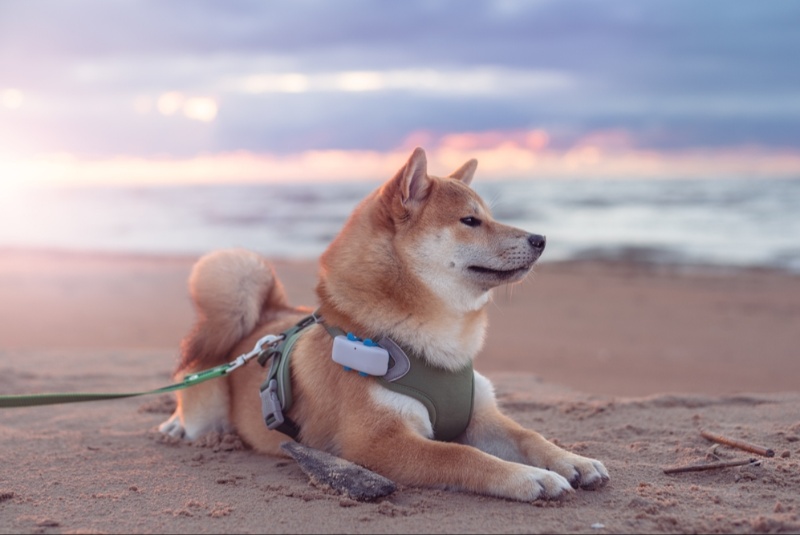For pet owners, the safety and well-being of their furry companions are paramount. In today’s tech-driven world, a pet GPS tracker is an invaluable tool for keeping tabs on your pet’s location and ensuring their safety. With numerous products in the market, choosing the right GPS tracker can be overwhelming. This 1,300-word guide is tailored to help responsible pet owners navigate through the various features and considerations, ensuring you select a GPS tracker that aligns with your needs and enhances the safety and freedom of your beloved pet.
Understanding the Importance of a Pet GPS Tracker
The first section will delve into why a GPS tracker is a crucial accessory for pet owners. From the peace of mind in knowing your pet’s whereabouts to the practicality of locating a lost pet, GPS trackers offer an array of benefits. This part will highlight how these devices not only safeguard your pet but also add to your convenience and assurance.
Types of Pet GPS Trackers
There are several types of GPS trackers, each with unique features and functionalities. Some rely solely on GPS, while others use a combination of technologies like Wi-Fi, Bluetooth, or cellular services. This section will explore these different types and help you understand which is best suited for your pet, based on factors like environment, range, and accuracy.
Size and Comfort: Ensuring Your Pet’s Ease
The size and weight of the tracker are important, especially for smaller pets. A bulky or heavy tracker can be uncomfortable or even harmful. This part of the article will guide you on selecting a GPS tracker that is the right size and weight for your pet, ensuring it doesn’t impede their movement or cause discomfort.
Battery Life and Charging
The effectiveness of a GPS tracker largely depends on its battery life. Longer battery life ensures consistent monitoring, especially important if your pet goes missing. This section will discuss the importance of battery life and charging options, guiding you on what to look for to ensure the tracker stays powered for as long as needed.
Durability and Water Resistance
Pets can be adventurous, making durability a key factor in choosing a GPS tracker. Water resistance is equally important, particularly for pets that love swimming or are exposed to the elements. This part will cover the durability and water resistance aspects, ensuring the tracker can withstand the rigors of your pet’s adventures.
Range and Coverage Area
The coverage area of the GPS tracker depends on the technology it uses. Some work well in urban environments, while others are designed for rural areas. This section will delve into the range and coverage area of different trackers, helping you choose one that aligns with your geographical location and typical range of your pet’s wanderings.
Real-Time Tracking and Alerts
Real-time tracking and immediate alerts are critical for promptly locating a lost pet. Trackers with geofencing capabilities can alert you when your pet leaves a designated safe area. This part of the guide will focus on these features, highlighting their importance in the quick and effective location of your pet.

User Interface and Accessibility
Ease of use and a user-friendly interface are vital. Whether it’s a mobile app or a web-based platform, accessing your pet’s location data should be straightforward. This section will guide you on assessing the user interface for intuitiveness and ease, ensuring you can effortlessly monitor your pet’s whereabouts.
Integrating Health Monitoring
Some advanced GPS trackers offer health monitoring features, such as activity tracking, sleep patterns, and even temperature alerts. This section will explore these additional functionalities and how they can contribute to not just tracking your pet’s location but also monitoring their overall health and well-being.
Compatibility with Your Devices
The compatibility of the GPS tracker with your smartphone or other devices is crucial for seamless operation. This part will discuss the importance of ensuring the tracker’s app or software is compatible with your device, providing hassle-free connectivity and access to your pet’s location data.
Cost and Subscription Services
Many GPS trackers come with initial purchase costs and ongoing subscription fees for cellular services. Balancing the cost against the features and benefits is essential. This section will offer advice on weighing these costs and choosing a tracker that offers the best value for your investment.
Privacy and Security Concerns
With the use of GPS technology comes the need for data privacy and security. This part of the article will address these concerns, guiding you on how to choose a tracker that ensures your and your pet’s data remains secure and private.
Reading Reviews and Seeking Recommendations
User reviews and recommendations can provide real insights into the performance and reliability of GPS trackers. This section will emphasize the value of tapping into the experiences of other pet owners, helping you make an informed decision based on user feedback and expert reviews.
A Step Towards Responsible Pet Ownership
In conclusion, choosing the right GPS tracker for your pet is a step towards responsible pet ownership. By considering factors such as size, battery life, range, and additional features, you can select a device that not only safeguards your pet but also fits seamlessly into your lifestyle. A well-chosen GPS tracker is not just a tool for location tracking; it's an investment in your pet’s safety and your peace of mind.




